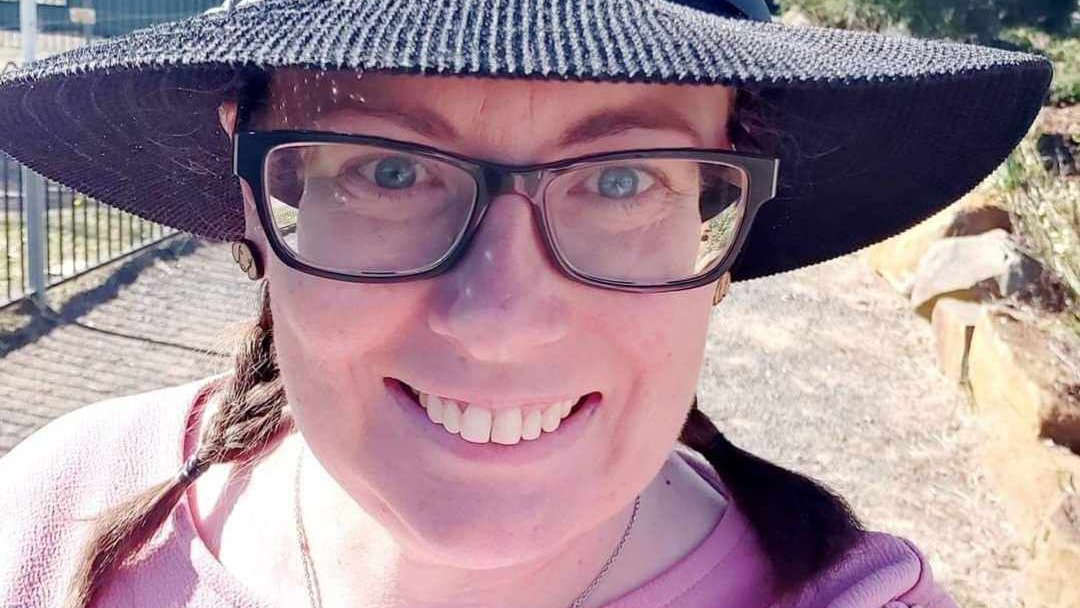Laura Bird can clearly remember the moment which left her in so much pain it led to her having to medically retire from her job in her early 30s.
The now-38-year-old was walking with her sister one lunchtime.
She was holding a drink bottle in her right hand, which she dropped to the ground.
READ MORE: New possible treatment for chronic pain sufferers flagged

"I went to pick it up and I realised my whole upper right quadrant was just paralysed," Bird told 9news.com.au.
"I had no idea what was happening to me.
"I couldn't feel anything, I couldn't move anything."
The incident eight years ago was linked to Bird's earlier diagnosis of complex regional pain syndrome, which is a form of chronic pain.
Chronic pain is pain that continues for more than three months.
But since the day she dropped that bottle, the pain hasn't gone - it has just spread further around her body.
She eventually had to leave her job as a call centre manager in Hobart.
Her illness also broke up her relationship and she can no longer travel or do daring sports like parasailing like she used to.
Despite seeing over 20 pain specialists, she has had little relief and also now suffers with depression and anxiety.
Bird takes various medications plus does laser therapies and aqua aerobics to try and help her condition.

READ MORE: Living with crippling migraines, 'There's a lot of us out there that just can't even get out of bed'
But she said despite 3.6 million Aussies having chronic pain, she feels stigmatised.
"There's a blame you caused your own pain," she said.
Bird, who volunteers with the Australia Pain Management Association, wants to see more support for patients.
"When you're diagnosed with chronic pain or a chronic illness, you're not given any support. You're just sent away," she said.
"You have to do all your own research."
READ MORE: New therapy developed for treating lower back pain
Stigma against pain is common, survey says
Bird's experience is common, a new survey has found.
Charity Chronic Pain Australia's National Pain Survey of 3000 people with chronic pain found more than half felt "stigmatised" by medics.
Almost 80 per cent of those asked in the survey said they had mental health issues too.
While the federal government has a new $3 million plan to tackle chronic pain, the charity says the money is "woefully inadequate".

Nicolette Ellis, president of Chronic Pain Australia, has called for more action.
"Insomnia, inactivity and poor mental health are both caused by chronic pain and contribute to worsening the condition," Ellis said.
"Without access to patient-centred care, people living with chronic pain are forced to give up several important health-promoting activities for physical and mental health.
"Left unaddressed, there is a risk that a lifetime of disability is on the cards for many Australians living with pain.
"This is a vicious cycle which will make the condition much worse for many of the 3.6 million Australians living with chronic pain."
Do you have a story? Contact journalist Sarah Swain: sswain@nine.com.au
What is chronic pain?
Chronic pain is pain that continues for more than three months after an injury, surgery, or another cause.
It affects 3.6 million Australians and is the leading cause of disability, and more prevalent than cancer, heart disease, and diabetes combined.
It cost $139 billion in 2020, according to the federal government.
It's the most common reason Aussies see their GP.
READ MORE: Police officer in intense pain told there was nothing wrong
What is being done?
In 2021, the federal government unveiled its $2.94 million National Strategic Plan for Pain Management
Endorsed by all state and territory governments, it includes money to fund training for medics around chronic pain.
"It emphasises improving awareness and understanding of pain; ensuring health practitioners are educated and informed to provide best-practice treatment and care; and identifying the most appropriate and effective mechanisms for advancing pain research," a Department of Health and Aged Care spokesperson said
Sign up here to receive our daily newsletters and breaking news alerts, sent straight to your inbox.
from 9News https://ift.tt/mlAPKzF
via IFTTT
Comments
Post a Comment